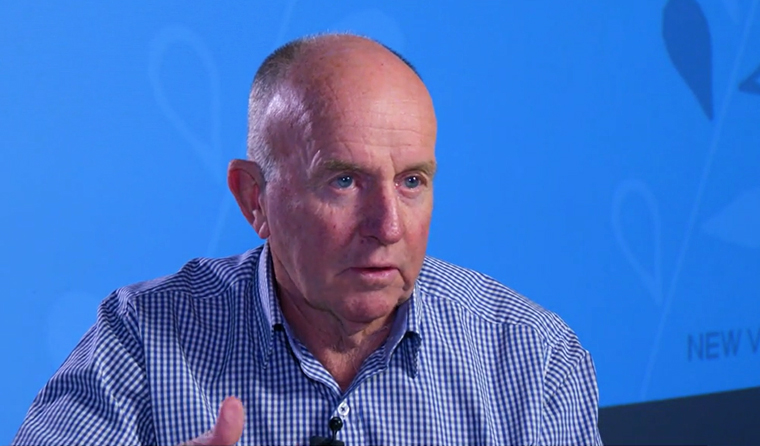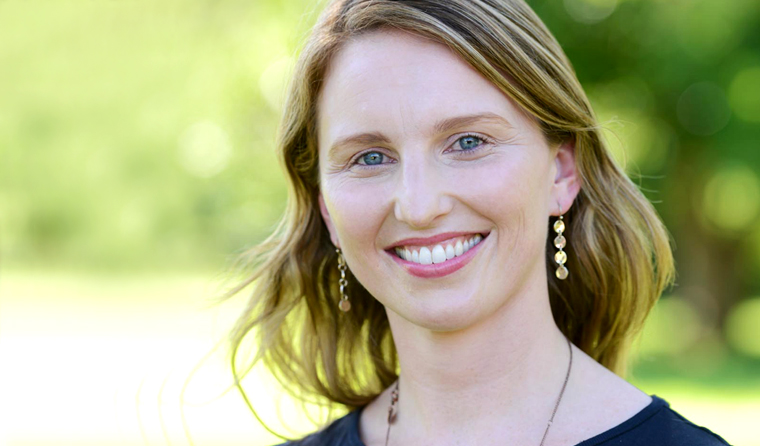News
#Every3Seconds campaign hopes to reduce the toll of dementia
A new international program is aiming to raise awareness about dementia and highlight the fact it is not a natural part of ageing, but a disease of the brain.
 Twenty-three leading dementia organisations have joined an international campaign, the #Every3Seconds program, to raise awareness about the disease.
Twenty-three leading dementia organisations have joined an international campaign, the #Every3Seconds program, to raise awareness about the disease.
It started as a minor irritant – too subtle to cause much concern.
‘What do you want for tea tonight?’
Even that simple question had become too difficult.
Five years ago, Doug Woods started noticing a change in his best friend, his wife, Kathy, but it took a while before she was finally diagnosed with dementia.
‘For me, it’s like you are with someone who is a bit different,’ Mr Woods told newsGP.
‘Kath still looks the same … outwardly she is terrific, it’s just that you are dealing with someone who is unable to think about things, have opinions … in some cases react differently to what Kath used to react.’
 Doug Woods is caring for his wife of 50 years, Kathy, who was diagnosed with dementia three years ago.
Doug Woods is caring for his wife of 50 years, Kathy, who was diagnosed with dementia three years ago.
According to advocacy organisation Dementia Australia, it is estimated there are more than 50 million people living with dementia globally. This figure is predicted to increase by 10 million in 2018.
Now Dementia Australia is one of the 23 leading dementia organisations worldwide who have joined an international awareness-raising campaign, the #Every3Seconds program.
Susan McCarthy, Dementia Australia Executive Director Client Services, told newsGP the program raises awareness of the fact that someone develops dementia every three seconds in the world.
According to Ms McCarthy, despite the fact dementia is a growing problem, there is a lack of knowledge about the disease in the community.
‘It’s the second-leading cause of death in Australia, it is now leading cause of death for women,’ she said.
‘However, we also know there isn’t a great understanding of what dementia is; there is a lot of misconception, a lot of fear.’
 Susan McCarthy, Dementia Australia Executive Director Client Services, says GPs are fundamental for early diagnosis of dementia.
Susan McCarthy, Dementia Australia Executive Director Client Services, says GPs are fundamental for early diagnosis of dementia.
Ms McCarthy said GPs are fundamental in helping fight dementia, especially with early diagnosis.
‘We know first-hand what a difference they can make to someone living with dementia and their families and carers, particularly around [early] diagnosis,’ she said.
‘We know there are some treatments available, but most of those treatments are really only beneficial for people if they are diagnosed earlier.
‘GPs often are not only the one to recognise some of the changes in their patients, but they can also bring in other specialists … who can support [the patient’s] care.’
Dementia Australia Chief Executive Maree McCabe said dementia is the global health and social challenge of this century that needs a renewed and sustained focus by governments and communities worldwide.
‘In Australia more than 425,000 Australians are living with dementia, with an estimated 250 people with dementia joining the population each day,’ Ms McCabe said.
‘Without a medical breakthrough, the number of people with dementia is expected to increase to an estimated 1.1 million in 2056 in Australia.’
Led by the global peak body Alzheimer’s Disease International, the #Every3Seconds program was launched in Chicago at the weekend.
The program includes a series of 23 films that highlight a number of issues, including stigma surrounding dementia, which creates a major barrier for people accessing a timely diagnosis, as well as the vital need for improved care and increased quality support services.
The RACGP’s Medical care of older persons in residential aged care facilities (Silver Book) has a number of recommendations for assessment, cognitive testing, differentiation of dementia from delirium and depression, management of behavioural and psychological symptoms of dementia, and medication.
Mr Woods said one of the disappointing aspects of his and his wife’s medical journey was that their neurologist failed to provide them with any resources on how to deal with the disease. It was only when he got in touch with organisations like Dementia Australia that he realised help was available.
Apart from meeting other carers, Mr Woods also learnt about technology that helped him see the world from a dementia patient’s eyes.
‘The addition of this sort of technology has helped me have a better understanding of how Kathy is seeing things,’ Mr Woods said.
‘Like looking into the bathroom, for example … where it is all white … and not recognising the toilet.
‘By placing yourself in their position…you can now understand their concerns.’
Mr Woods, who has just celebrated 50 years of marriage with his wife and is now her full-time carer, said overall they have had an excellent marriage.
‘Things are still good,’ he said.
‘It’s just, unfortunately, you have to get used to doing things differently. You just have to modify the way you socialise, the way you live.’
#Every3Seconds Dementia Dementia australia
newsGP weekly poll
What is your chief concern with role substitution?